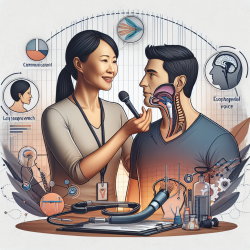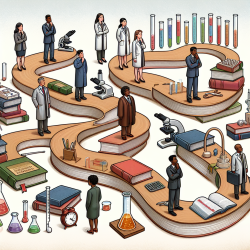As practitioners in the field of speech-language pathology, we constantly strive to improve our assessment tools and methodologies to create the best outcomes for children. One significant development in cognitive assessment is the revised Gibson Test of Cognitive Skills. This computer-based test battery is designed to assess various cognitive skills across the lifespan, and recent research highlights its reliability and validity.
The study, "Reliability and Validity of the Revised Gibson Test of Cognitive Skills," published in Psychology Research and Behavior Management, evaluates the test's psychometric properties. With a sample size of 2,737 participants aged 5-85 years, the study provides robust evidence supporting the test's use in diverse settings.
Key Findings
The study reveals several important findings:
- Internal Consistency Reliability: Coefficient alphas ranged from 0.87 to 0.98, indicating strong internal consistency.
- Test-Retest Reliability: Coefficients ranged from 0.69 to 0.91, demonstrating the test's stability over time.
- Split-Half Reliability: Coefficients ranged from 0.87 to 0.91, further supporting the test's reliability.
- Concurrent Validity: Correlation coefficients ranged from 0.53 to 0.93 when compared with the Woodcock Johnson III Tests of Cognitive Abilities and Tests of Achievement.
Implications for Practitioners
Given these findings, practitioners can confidently use the revised Gibson Test of Cognitive Skills to assess various cognitive domains, including:
- Short-term memory
- Long-term memory
- Processing speed
- Auditory processing
- Visual processing
- Logic and reasoning
- Word attack skills
The inclusion of auditory processing and basic reading skills in a digital format makes this test particularly valuable for speech-language pathologists. By identifying specific cognitive deficits, practitioners can tailor interventions more effectively, leading to better outcomes for children.
Encouraging Further Research
While the revised Gibson Test of Cognitive Skills offers a reliable and valid tool for cognitive assessment, further research is encouraged to explore its application in clinical populations and its predictive validity. As practitioners, staying informed about the latest research and advancements in assessment tools is crucial for continuous improvement in our field.
To read the original research paper, please follow this link: Reliability and validity of the revised Gibson Test of Cognitive Skills, a computer-based test battery for assessing cognition across the lifespan.










